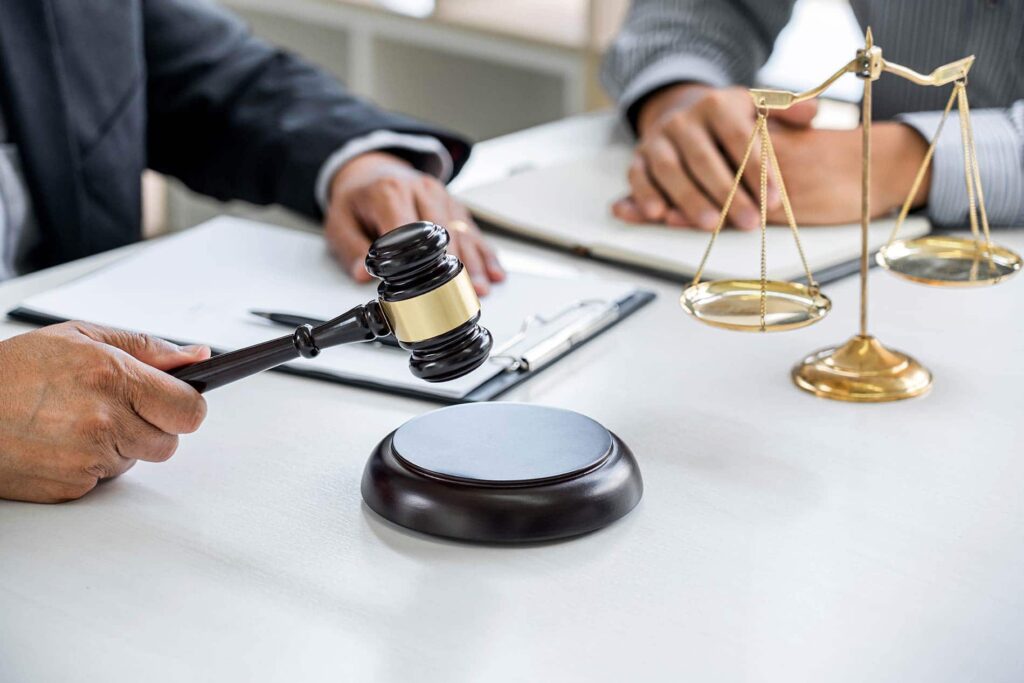Property transactions can be complex and overwhelming, especially for those who are not familiar with the intricacies of the process. However, the role of a conveyancer is crucial in ensuring that the entire transaction runs smoothly and efficiently.
In this article, we will delve into the basics of property transactions, discuss the key players involved, explore the duties and responsibilities of a conveyancer, outline the different stages of conveyancing Newcastle, and highlight the benefits of hiring a conveyancer to guide you through the process.
Understanding the Basics of Property Transactions
Property transactions are an essential part of the real estate industry. They involve the legal process of transferring the ownership of a property from one party to another. This process requires careful attention to detail and adherence to specific steps and documentation to ensure a valid and lawful transfer.
What is a Property Transaction?
A property transaction refers to the legal process of transferring the ownership of a property from one party to another. It involves a series of steps and documentation that must be completed to ensure a valid and lawful transfer.

When engaging in a property transaction, it is crucial to have a clear understanding of the process and the parties involved. This knowledge will help you navigate the transaction smoothly and avoid any potential pitfalls.
The process typically begins with the buyer expressing interest in purchasing a property and making an offer. If the seller accepts the offer, both parties proceed to negotiate the terms and conditions of the sale.
Once the terms are agreed upon, the next step is to draft a legally binding contract, known as the purchase agreement or sales contract. This document outlines the terms of the sale, including the purchase price, closing date, and any contingencies.
After the purchase agreement is signed, the buyer will typically conduct inspections and appraisals to ensure the property is in good condition and worth the agreed-upon price. If any issues arise during this stage, the parties may need to renegotiate or terminate the contract.
Assuming all goes well with the inspections and appraisals, the next step is to secure financing. The buyer will work with a mortgage lender to obtain a loan to finance the purchase. This process involves submitting financial documents, such as income statements and credit reports, and going through the underwriting process. Learn more tips for choosing the right conveyancing solicitor.
Once the financing is secured, the transaction moves forward to the closing stage. During the closing, all parties involved gather to sign the necessary documents and finalize the transfer of ownership. This includes the buyer signing the mortgage documents and the seller signing the deed.
Finally, after the closing, the property officially changes ownership, and the buyer becomes the new owner. The transaction is complete, and the buyer can take possession of the property.
Key Players in a Property Transaction
Several parties are involved in a property transaction. Each party plays a specific role in the transaction and contributes to its successful completion.
The buyer is the individual or entity purchasing the property. They are responsible for conducting due diligence, securing financing, and complying with the terms of the purchase agreement.
The seller is the current owner of the property who is selling it to the buyer. They must disclose any known defects or issues with the property and comply with the terms of the purchase agreement.
Real estate agents act as intermediaries between the buyer and seller. They help market the property, facilitate negotiations, and ensure all parties are informed throughout the transaction.
Mortgage lenders provide financing to the buyer. They evaluate the buyer’s financial situation, determine the loan amount, and guide the buyer through the loan application process.
Lastly, the conveyancer, also known as the closing agent or escrow officer, is a neutral third party responsible for coordinating the closing process. They ensure all necessary documents are signed, funds are transferred, and the property is legally transferred to the buyer.
Each of these key players has a vital role in the property transaction. Their collaboration and expertise help facilitate a smooth and successful transfer of ownership.

The Role of a Conveyancer in Property Transactions
Property transactions can be complex and involve numerous legal requirements. To navigate through this process smoothly, it is essential to have a licensed professional who specializes in property law – a conveyancer. A conveyancer acts as a mediator between the buyer and seller, overseeing the legal aspects of the transaction and ensuring that both parties fulfill their obligations.
Who is a Conveyancer?
A conveyancer is a highly skilled and knowledgeable professional who is well-versed in property laws and regulations. They play a vital role in property transactions by guiding their clients through the intricacies of the legal process. With their expertise, they help protect the interests of both buyers and sellers, ensuring a fair and lawful transaction.
Duties and Responsibilities of a Conveyancer
A conveyancer’s duties and responsibilities vary depending on the different stages of a property transaction. In the initial stage, they conduct comprehensive searches to ensure that the property is free from any legal issues or encumbrances. This involves examining various records, such as land registry documents, local authority searches, and environmental reports, to identify any potential problems that may affect the property.
Once the searches are complete, the conveyancer prepares the necessary legal documents, such as contracts and transfer deeds. These documents outline the terms and conditions of the transaction, protecting the rights and interests of both parties involved. The conveyancer ensures that all the legal requirements are met and that the documents accurately reflect the agreement between the buyer and seller.
During the post-contract stage, the conveyancer plays a crucial role in coordinating with the buyer’s mortgage lender to finalize the financial arrangements. They ensure that the necessary funds are in place for the completion of the transaction. This includes liaising with the lender, arranging for the transfer of funds, and ensuring that all financial obligations are met by the specified deadlines.
Finally, in the post-completion stage, the conveyancer takes care of registering the property transfer with the relevant government authorities. This involves submitting the necessary documents and paying the required fees to officially transfer the ownership of the property from the seller to the buyer. By completing this registration process, the conveyancer ensures that the transaction is legally recognized and recorded.
The Importance of a Conveyancer in Property Transactions
The role of a conveyancer in property transactions cannot be overstated. Their expertise in property laws and regulations helps prevent legal complications and protects the interests of their clients. By thoroughly reviewing the legal documents and conducting extensive searches, a conveyancer can identify any potential issues and address them before they become major obstacles.
Moreover, a conveyancer’s involvement provides peace of mind to both buyers and sellers. They act as a trusted advisor, guiding their clients through the entire process and ensuring that all the necessary legal requirements are met. This helps minimize the risks associated with property transactions and enhances the overall efficiency and transparency of the process.
In conclusion, a conveyancer plays a vital role in property transactions, acting as a knowledgeable and experienced professional who oversees the legal aspects of the process. Their expertise and attention to detail help ensure a smooth and lawful transaction, giving both buyers and sellers the confidence and reassurance they need when navigating the complexities of property law.
The Process of Conveyancing
Conveyancing is a crucial process in the world of real estate. It involves the legal transfer of property ownership from one party to another. This process is complex and requires the expertise of a conveyancer, who acts as an intermediary between the buyer and seller. Let’s dive deeper into the different stages of conveyancing.
Pre-contract Stage
Before any contracts are signed, the conveyancer plays a vital role in ensuring that the property is free from any legal issues. They conduct thorough searches, such as a title search, to verify the ownership and legal status of the property. This search helps identify any potential problems, such as outstanding mortgages or restrictions on the property.
Furthermore, the conveyancer examines any existing contracts, leases, or restrictions that might affect the transaction. This step is crucial in understanding the rights and obligations associated with the property. They also negotiate the terms of the contract on behalf of their clients, ensuring that their interests are protected. Additionally, they provide legal advice to their clients, ensuring that they understand the implications of the transaction.
Post-contract Stage
Once the contract is signed, the post-contract stage begins. During this stage, the conveyancer takes on the responsibility of coordinating the exchange of contracts between the buyer and seller. They ensure that all necessary documents are in place and that both parties are satisfied with the terms of the contract.
Another crucial aspect of the post-contract stage is liaising with the mortgage lender. The conveyancer works closely with the lender to ensure that the necessary funds are available for the completion of the transaction. They review the mortgage offer and advise the buyer on its terms and conditions. This step is essential in helping the buyer understand their financial obligations and ensuring a smooth transfer of funds.

Post-completion Stage
After the transaction is completed, the conveyancer’s work is not yet done. They undertake several tasks to finalize the transfer of ownership and ensure that all legal requirements are met. One of the key responsibilities is registering the transfer deed with the appropriate government authority. This step ensures that the legal ownership of the property is officially recorded and protects the buyer’s rights.
In addition to registering the transfer deed, the conveyancer also arranges for the payment of any outstanding costs. This may include stamp duty, land registration fees, or any other expenses incurred during the conveyancing process. By taking care of these financial obligations, the conveyancer ensures that the buyer can fully enjoy their new property without any lingering legal or financial issues.
As you can see, the conveyancing process involves various stages and requires attention to detail. A skilled conveyancer plays a crucial role in ensuring a smooth and legally sound property transaction. Whether you’re buying or selling a property, having a knowledgeable conveyancer by your side can provide you with peace of mind and protect your interests throughout the process.
The Benefits of Hiring a Conveyancer
Legal Expertise and Guidance
One of the primary benefits of hiring a conveyancer is their extensive knowledge and expertise in property law. They understand the complexities of the process and can provide invaluable advice and guidance at every step. By engaging a conveyancer, you can have peace of mind that your transaction is in safe hands.
Stress-free Property Transactions
Dealing with the legal aspects of a property transaction can be overwhelming, especially for first-time buyers or sellers. Hiring a conveyancer allows you to offload the burden of paperwork and legal obligations to a qualified professional. They take care of all the necessary documentation and ensure that the transaction proceeds smoothly, allowing you to focus on other aspects of the move.
Avoiding Potential Pitfalls in Property Transactions
Property transactions can be fraught with potential pitfalls, such as hidden charges, defective titles, or incomplete contract clauses. A conveyancer is well-versed in identifying and resolving these issues, reducing the risk of complications or disputes. Their expertise can help protect your interests and prevent costly mistakes.
Conclusion
In conclusion, the role of a conveyancer in property transactions is vital. They act as a legal guide, ensuring that the transaction adheres to all legal requirements and protecting the interests of their clients. By understanding the basics of property transactions, recognizing the importance of a conveyancer, and being aware of the benefits of hiring one, you can navigate the process with confidence and achieve a successful outcome.
